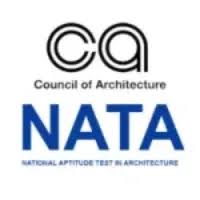NATA -2025
INTRODUCTION
The Council of Architecture (CoA) is an autonomous statutory body of Ministry of Education, Government of India constituted under the provisions of the Architects Act, 1972. This Act was enacted by the Parliament of India and came into force with effect from 1st September, 1972. The Act provides for registration of Architects ,standards of education, recognized qualifications and standards of professional conduct and etiquette to be complied with by the architects. The Council of Architecture is vested with the responsibility of maintaining the register of architects on national basis as well as regulating the Architecture education and practice of Architecture profession throughout India. For this purpose, the Government of India has framed Rules and Council has framed Regulations as provided for in the Architects Act, with the approval of Government of India. Any person desirous of carrying on the profession as ‘Architect’ must have registration with Council of Architecture. For the purpose of registration, one must undergo the education in accordance with the Council of Architecture Minimum Standards of Architectural Education Regulations and possess the recognized qualification as appended to the Architects Act. The registration with Council of Architecture as an Architect entitles a person to use the title and style of Architect, for practicing the profession of architecture. If any person falsely represents or claims to be registered architect or uses any words or letters to suggest that she/he is an architect or misuses title and style of architect, such acts tantamount to committing of a criminal offence punishable under the Architects Act, 1972.The practice of profession of an architect is regulated under the Architects (Professional Conduct) Regulations,1989 (as amended in 2003), which prescribe the professional conduct, ethics and etiquette, conditions of engagement and scale of charges, architectural competition guidelines etc. Pursuant to these Regulations, the Council of Architecture has framed guidelines governing the various aspects of practice. There are about 465 institutions presently imparting architectural education in India leading to recognized qualifications. The standards of education being imparted in these institutions (constituent colleges/departments of universities, deemed universities, affiliated colleges/schools, IITs, NITs and autonomous institutions) are prescribed and monitored by Council of Architecture by way of Regulations and norms & standards prescribed from time to
time, which set forth the requirement of eligibility for admission, course duration, standards of staff &
accommodation, course content, examination etc. These minimum standards as prescribed by the Council are required to be maintained by all the institutions. The CoA oversees the maintenance of the standards periodically by way of conducting inspections. The CoA is required to keep the Central Government informed of the standards being maintained by the institutions and is empowered to make recommendations to the Government of India with regard to recognition and/or derecognition of a qualification. As per the Council of Architecture (Minimum Standards of Architectural
Education) Regulations, 2020, qualifying in an aptitude test in Architecture conducted by the Council is a
mandatory requirement for admission to B.Arch. degree course.






